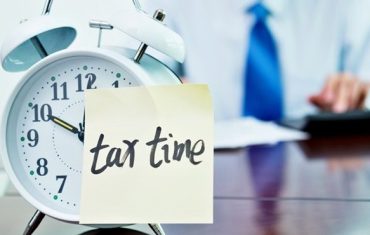Running a small business is hard enough without getting caught up in the complexities of the tax system, so to make things easier we’ve put together some simple things you should know (that might even save you money). Of course, if you’re unsure about tax and your business it’s always best to consult a professional.
Don’t miss out on deductions
You can claim tax deductions for most of the costs you incur while running your business. This includes operating expenses such as: staff wages and superannuation; property costs (rent, mortgage interest, rates and land tax for your business premises); advertising and marketing to sell stock, gain publicity and hire employees; tax and accounting expenses; and business insurance (provided the premiums are connected to your business’ capacity to earn an income or to protect its assets).
Everything you purchase to sell in store is tax deductible as a cost-of-sale, and you can also claim the associated costs of getting stock delivered from suppliers as well as other costs of sale like delivery charges to customers (if you pay them rather than the customer), packaging, etc. And if you travel to trade fairs to examine new products, those costs are also deductible.
Capital purchases write-off
Until 30 June 2018, your business can claim an immediate tax deduction for all capital purchases that cost less than $20,000, rather than writing off the cost over several years. To qualify, you must be a small business with an aggregate turnover of less than $10 million.
This could be a great way to refresh your store and generate some extra cash flow through purchases like cash registers and other POS devices; store fittings and fixtures; computers, laptops and tablets; in-store security systems; and accounting software.
Reorganise your business tax-free
The government has introduced measures that allow small businesses to reorganise themselves without incurring unexpected income tax consequences, such as capital gains on asset transfers.
This is particularly valuable for new and expanding businesses that want to change their legal form to allow greater asset protection for the owners or greater freedom to expand, for example by changing from a sole trader to a trust or company.
Keep the right records
Keeping the right records throughout the year will pay dividends come tax time—you’ll have all the paperwork on hand to know exactly what you can claim and if you get audited you’ll have evidence to back up your claims.
Here’s what you should keep.
1 Income and sales records: details of all your sales, including invoices and sales ledgers.
2 Expense or purchase records: records of all your business expenses; records of any assets purchased for use in the business (shop fitouts, cash registers etc.); records of anything purchased partly for private use and partly for business use, with an indication showing how you worked out the private use. E.g. if you purchase a mobile phone for $500 (exclusive of GST) that is used 90 per cent in the business and 10 per cent privately, you can only claim a tax deduction on $450.
3 Wages records: details of who you paid wages to, how much and when.
4 Year-end records: lists of your creditors and debtors; worksheets to calculate the decreasing value of your assets.
5 Bank records: documents you receive from the bank like credit card statements and loan documents.
6 GST records: the main GST records you need to keep are tax invoices from your suppliers.







